Profile
Dr Anabah, agent of change in the health sector

Dr Thomas Winsum Anabah is a professional medical doctor whose specialties include critical care, emergency medicine and anaesthesiology. He is among the few medical doctors with such specialties.
He is experienced in Health Management with practical approach to problem solving and has a knack for “see things through” to a successful completion.
Challenges in his early years could not kill his vision of becoming a health practitioner and he has over the years continued to contribute effectively to providing quality service in the health sector.
The Spectator caught up with him recently to delve into his professional and personal life.
Background
Dr Anabah hails from a town called Garu, in the Worikambo Electoral Area in the Upper East Region.
The talented medical doctor has six siblings, from the late Joseph Anabah and Mrs Veronica Anabah.
Dr Anabah speaks English, Spanish, Italian, Kusaal, Hausa and Twi and is married with two children.
Education
Having an indefatigable father who occupied portfolios of a teacher and politician, Dr Anabah had his primary school education in a haphazard manner.
He went to Nalerigu Primary School and later attended Worikambo Primary School and later moved to Bawku Primary School which is also known as Wenamzua Primary School from where he later moved again to Worikambo to attend middle school.
Dr Anabah’s middle school education was not a “straight” one as he moved back and forth from Worikambo and Winanzua middle schools and later proceeded to Bawku Secondary School until he got a scholarship in 1988 to study in Cuba.
From 1988 to 1992, Dr Anabah obtained a Junior High School Diploma from the Kwame Nkrumah Memorial School at Isle of Youth in Cuba, where he was the Senior Prefect and continued his High School education at the Andrei Grechko Senior High School, also at the Isle of Youth, Cuba from 1992 to 1993.
While in the High School, everybody thought Dr Anabah would read Cybernetics because he was a genius at Mathematics, Physics and Chemistry but he rather pursued his dream of becoming a medical doctor.
Attaining a higher feat and making his dream come true, Dr Anabah further attended Higher Institute of Medical Sciences at Santa Clara, Cuba where he studied Medicine from 1995 to 2001.
He was one of the best graduates in the entire university and was also the Best Foreign Student, who took awards in sports, culture among others.
Adding to his educational laurels, the never-say-never doctor enrolled at the Higher Institute of Medical Sciences in Havana, Cuba where he did his Specialist Anaesthesiology and Resuscitation from 2003 to 2007.
He again obtained a Masters in Critical Care and Emergencies from La Sapienza, University of Rome in Italy, from 2008 to 2009.
Professional Experiences
Dr Thomas Winsum Anabah rose through the ranks to become a force to reckon with in the medical field.
He began his clinical attachment at the Korle-Bu Teaching Hospital in October 2001 to January 2002 and then became a House Officer there from March 2002 to February 2003.
This hardworking and ambitious health professional later became a Medical Officer from March to October 2003 at the same Hospital.
He served as a Specialist Anaesthesiologist and Resuscitation at the Ridge Hospital, Accra between 2007 and 2008, after which he became a Consultant Anaesthesiologist cum Head of Department Anaesthesia and Critical Care at the same hospital, from 2009 to 2012.
Dr Anabah has been a United Nations Examining Physician since 2013 to date for the world body.
He was the Medical Director of Accra Regional Hospital (Ridge), Accra from February 2016 to May 2017 where he gave the hospital a tremendous facelift.
Dr Anabah has been the C.E.O of Habana Medical Service, Tamale since June 2017 to date and is also the Executive Director of African Centre for Health Policy Research and Analysis (ACH-PRA) from January 2018 to date.
Achievements
Having a keen interest in the development of health systems in Ghana, Dr Anabah has put up a sterling performance in contributing his quota towards quality health delivery in the nation.
He successfully developed and established a Critical Care Unit at the Tamale Teaching Hospital and also secured a grant from Rotary International to establish an Obstetric High Depended Unit at the Tamale Teaching Hospital.
He again developed the first ever BSc Nurse Anaesthesia Programme in Africa and the programme is being rolled out at the University for Development Studies, Tamale, since 2001.
According to him, the programme has come to resolve a huge national problem by creating a clear career pathway for nurse anaesthetists in Ghana who hitherto had no opportunity for career progression in the specialty.
Dr Anabah told The Spectator that he had established and managed a private hospital called “Habana Medical Service” at Tamale which has received several awards both locally and internationally for the quality of care and management style.
“I was celebrated as a Humanitarian Hero by LifeBox Foundation, 2015 in the United Kingdom for my contribution in the development of anaesthesia in the world,” he boldly and happily stated.
He has established and funded a health facility policy think-tank; Africa Centre for Health Policy Research and Analysis (ACH-PRA), headquartered at Tamale.
Hobbies and Interests
The banku and okro soup lover likes reading, gardening, public speaking and sports and is a Rotarian, currently the Rotary Foundation Chair of the Tamale Rotary Club.
By Alfred Nii Arday Ankrah
Profile
ROFAC creating safer communities within Ada, Madina-Adenta enclave
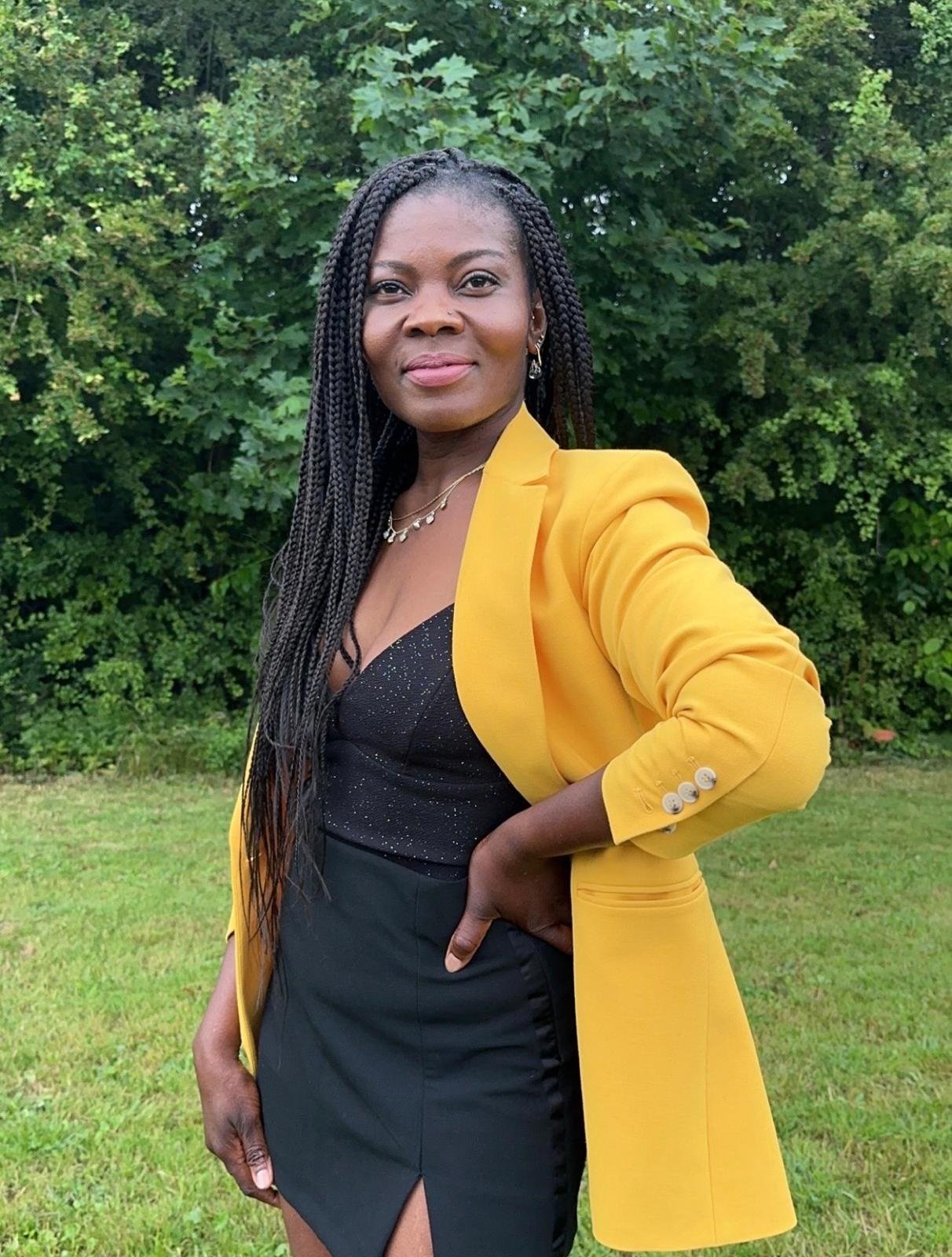
The infectious smiles and beaming grin on the faces of children is one of life’s greatest joys. It also has a way of brightening even the darkest days.
Most children have their smiles dimmed because their parents have no means of providing them with their basic needs and rights.
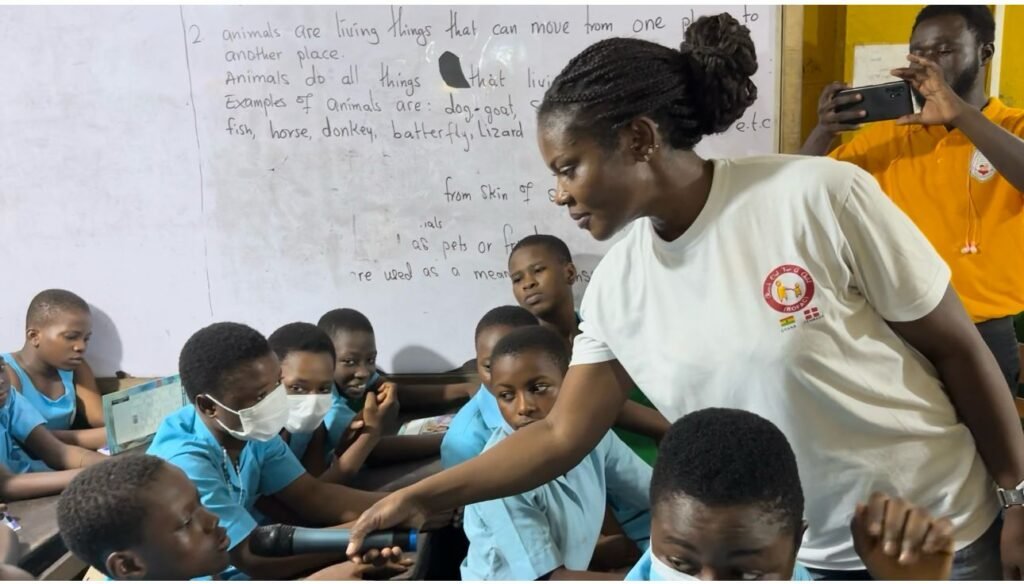
While some have lost their childhood to struggles of life, others have lost it to the cruelty of abuse, neglect and harsh realities of poverty.
Helping bridge the gap by putting smiles on faces of less privileged children, Reach out for a Child (ROFAC) is gradually becoming a household name in the Greater Accra Region, especially within the Ada and the Madina- Adenta enclave.
With the aim to improve education, healthcare, and facilities for the underprivileged group in Ghana, ROFAC believes that by improving school infrastructures, learning will be attractive to children, thus increasing attendance and providing a pleasant and safe learning environment.
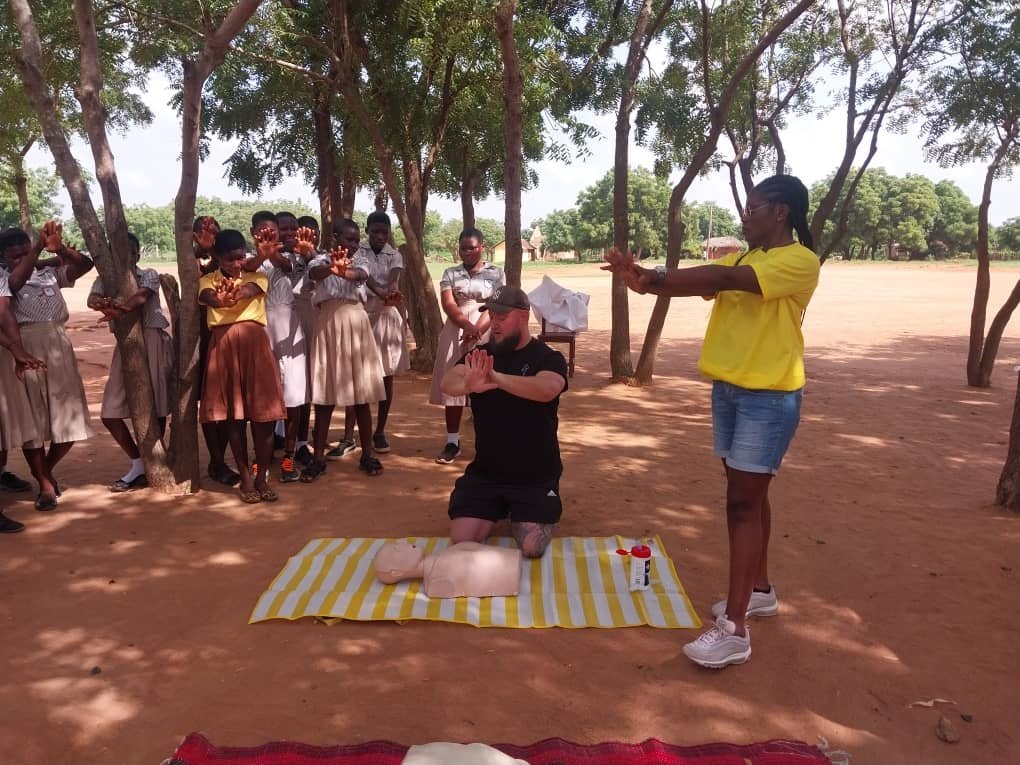
Yvonne Mawufemor Pedersen is an Acute & Emergency Care Nurse (RN, BSN), working in one of the first and largest super-hospitals in Denmark.
How it started
Life in Denmark is far from life in Ghana, where Yvonne grew up.
In 2008 while living in Denmark, Yvonne watched a “United Danish Appeal For Funds” program on television, raise funds to support third world countries, targeting all countries that appear on “The Organization For Economic Cooperation and Development” (OECD), list of third world countries, Ghana was on the list. The television program lit a fire of curiosity in me, but also a level of rage of helplessness.
Growing up in Ghana I knew of some of the challenges some children were subjected to, having to skip school to sell on the streets and in markets to help support the rest of the family. Some, runaways due to domestic violence and abuse. Inadequate infrastructure in most schools didn’t make school attractive either.
I have always had the drive of “Florence Nightingale” I wanted to do something. I wanted to contribute to shifting the narratives of the less privileged. These, and the television program I saw in 2008, contributed to a visit to Ghana, earlier than planned.
The Charity
Reach Out For A Child- (ROFAC) is a small Danish registered charity, started in 2009 by Yvonne Mawufemor Pedersen, a Ghanaian/Togolese resident in Denmark.
The charity was initially formed to raise funds for street children and head potters, after being inspired by a trip while visiting family in Ghana, and sourcing out how to shift the narratives of the above-mentioned group of people. As a result, ROFAC, Ghana was established in the same year, now our partner in Ghana.
Astonishingly, the original target funds were exceeded, and we decided to expand our support to single mothers. We started to raise funds to support the target group, meeting them in the rural areas before their migration to the capital.
As our understanding of rural communities in Ghana grew, so did the scope of our projects, because we understand, there are many factors that contribute to getting a child off the streets and into a classroom, therefore we expanded further to supporting hospitals and schools in rural Accra with teaching aids, hospital equipment’s and giving health education.
As well as lessons in first aid and CPR. This not only includes knowledge to our direct beneficiaries alone, but also that of their families and wider community.
We also, in partnership with our local partners, tailor internship programs for nursing students from Denmark to Ghana.
Our project and since 2009, ROFAC has helped many families in various communities through our numerous projects, and we are determined to ensure that this continues despite challenging circumstances we sometimes encounter.
Through her initiative, ROFAC has over the years, donated school furniture and writing boards for teachers and pupils at the Nuhalenya D/A Primary School in the Ada district, explaining that the organisation has been part of the growing process of the school since the year 2018 for which the head teacher, Mr Narh, together with teachers and some opinion leaders had always expressed their gratitude to the team.

School practicing how to resuscitate
Speaking to The Spectator in Accra last Thursday, Ms Pedersen said the organisation has also begun teaching Cardiopulmonary Resuscitation (CPR) in some basic schools, including Nuhanenya in Ada District and Pauline Queensland schools at Agbogbloshie in the Greater Accra Region to equip young learners with essential skills that can help save lives during cardiac emergencies.
CPR is a lifesaving emergency procedure performed when the heart stops beating.
Introducing the CPR programme in the basic schools, she indicated would not only empower the children with practical knowledge but also promote a culture of safety and responsibility.
In this cause, ROFAC has been advocating the subject matter to teach students the basic steps of CPR, including chest compressions and rescue breaths.
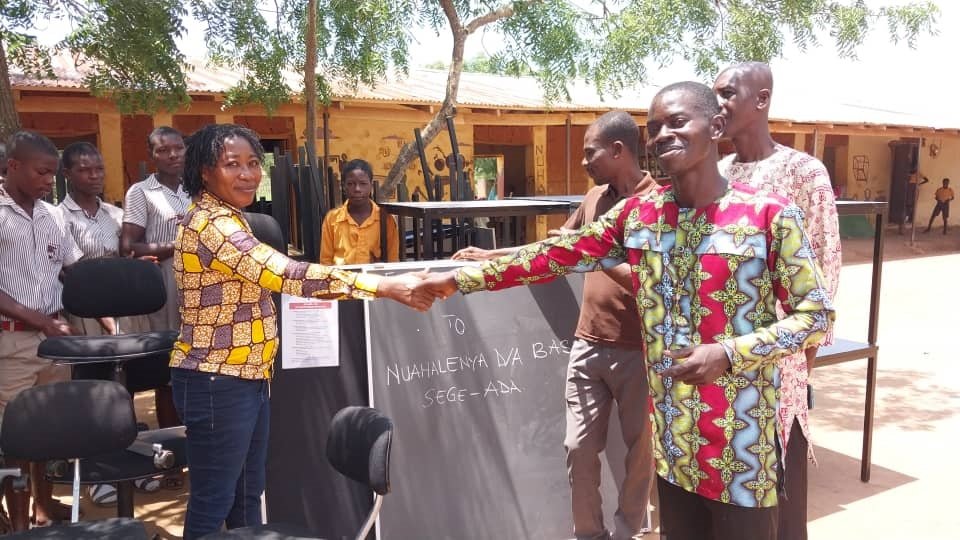
She mentioned that to educate children on recognising emergencies and the importance of seeking adult help will increase awareness of heart health.
As part of the safety measures, ROFAC has also introduce the idea of using child friendly mannequins for the learners to practice chest compressions and breathing techniques under the guidance of medical trainers.
The programme, she said, emphasises on safety, including how to avoid panic and handle emergency situations calmly. The schedule for subsequent teaching children CPR will potentially assist in saving lives within their families and communities.
“Implementing a CPR programme in basic schools is a valuable investment in public health and safety. It empowers students with essential life-saving skills and fosters a sense of responsibility and confidence. By integrating CPR education into the curriculum, schools contribute to building safer communities,” she explained.
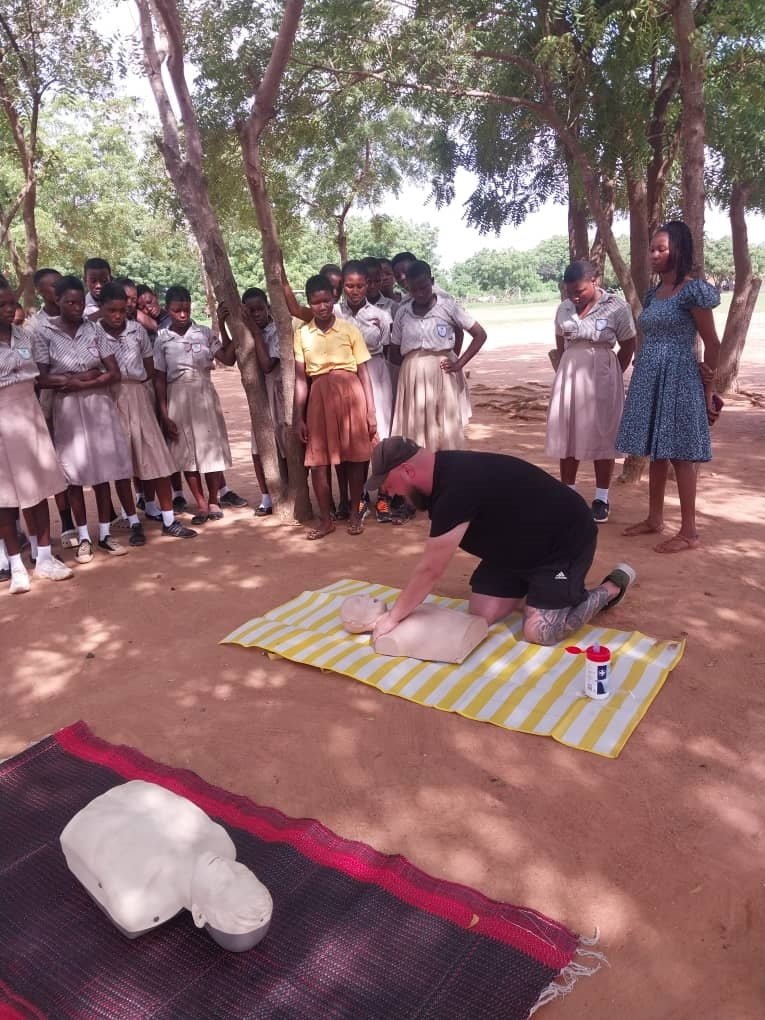
Ms Pedersen further indicated that the programme not only prepares children to respond to emergencies but also cultivates a generation of informed and proactive individuals.
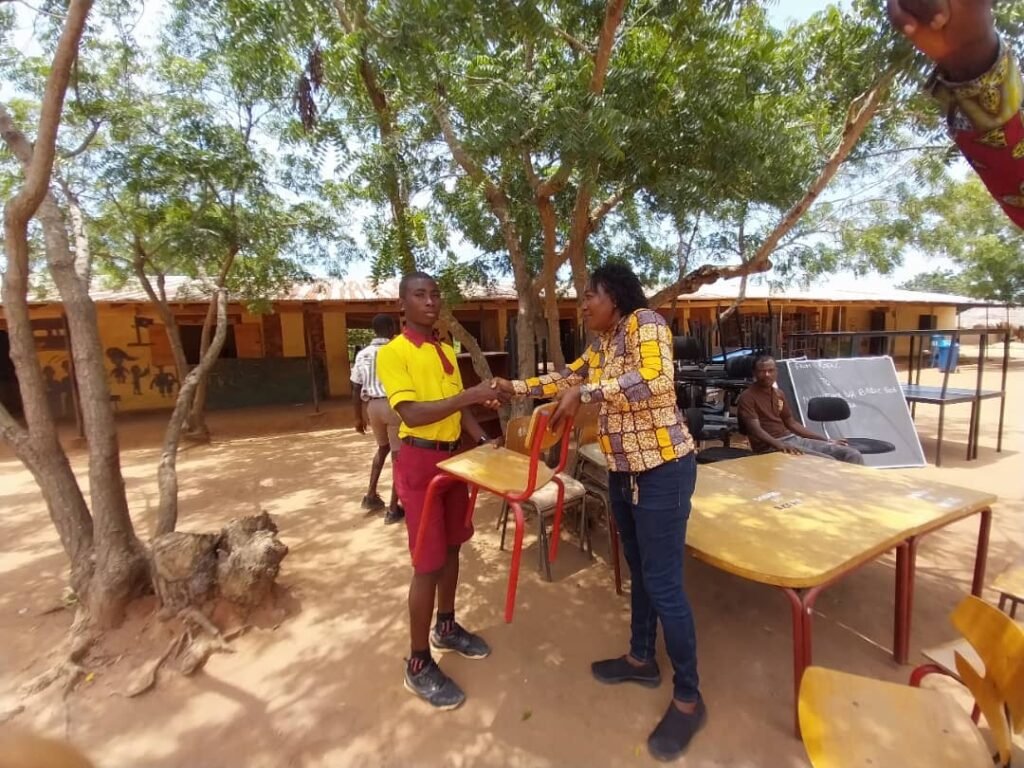
ROFAC also embarked on another project by donating a laboratory incubator to the Duala Medical Clinic based at Burma Camp in Accra.
This follows a request made by the medical doctor in charge, Dr Awura Adjoa Nunoo, for the equipment for services at the facility.
By Lawrence Vomafa-Akpalu
Profile
From passion to plate: Chichi Yakubu’s culinary journey
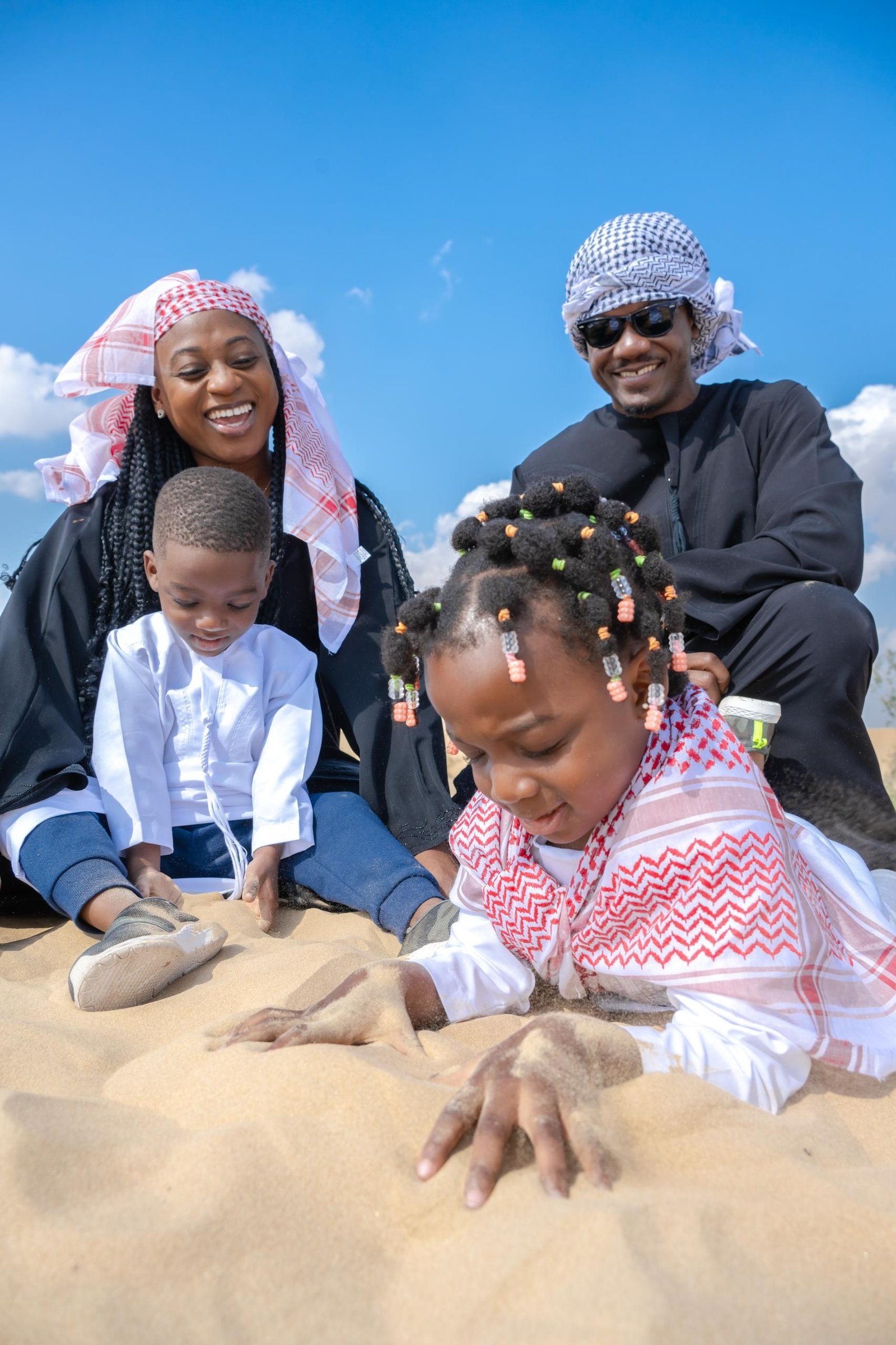
Driven by her personal weight loss journey and passion for healthy eating, Chichi Yakubu has carved a niche for herself in the culinary industry.
Her dedication and commitment has turned her business, NyoNyo Essentials, to one of Ghana’s most sought-after catering companies in the country.
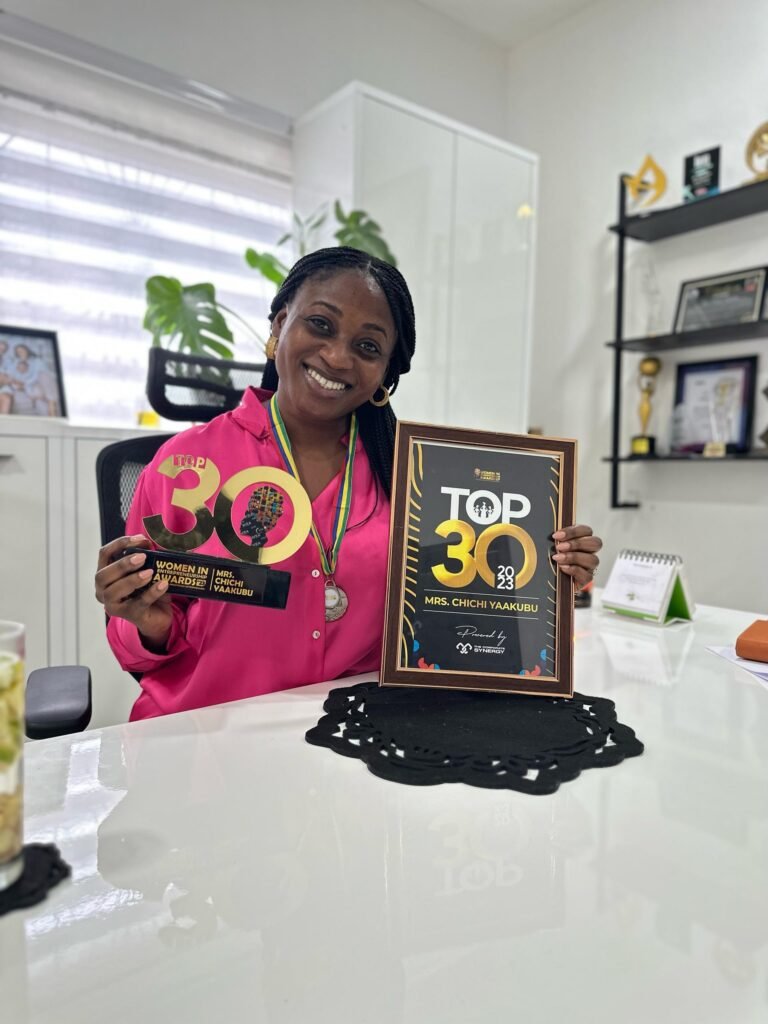
Born to a Nigerian father and a Ghanaian mother, Chichi grew up in a family of passionate women at Mamprobi Polytechnic.
Her mother, an avid cook, started a small catering business, which Chichi helped manage during vacations.
“From upper primary through to Junior High School, I will close from school to go and help my mother at her small food stand at Sakaman to do the dishes after her customers had eaten.
Her mother was known for her special dough Banku with Okro soup. Her small food joint expanded to become a chop bar where she worked at when on vacations.
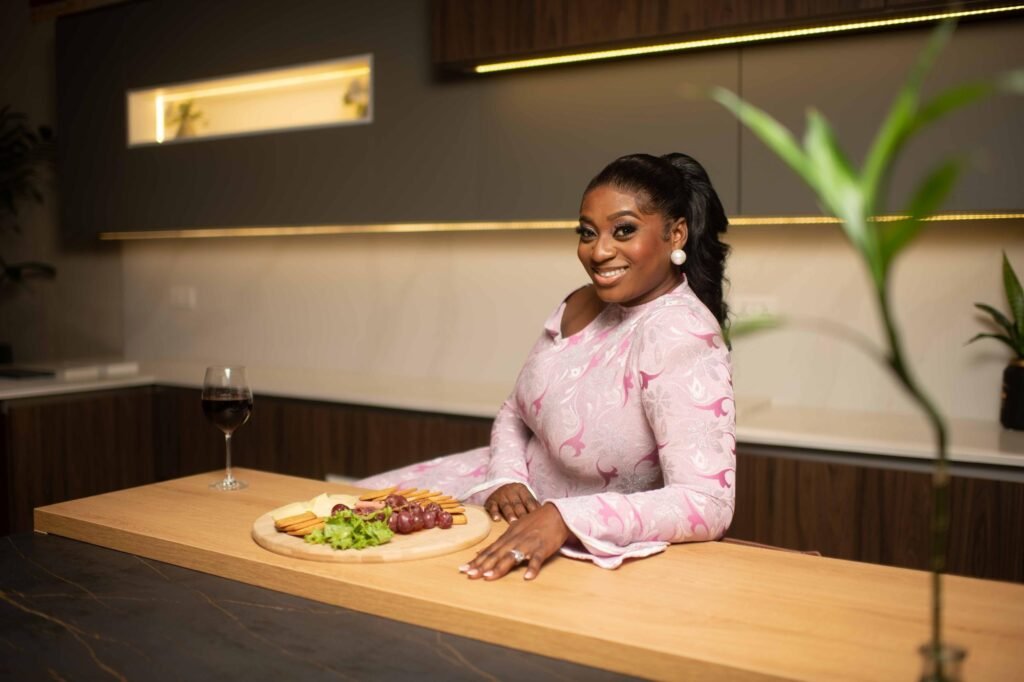
She acknowledged that, “this early exposure to entrepreneurship sparked my interest in the culinary industry.”
After her university education, Chichi embarked on a weight loss journey, which led her to explore the culinary side of things.
According to Chichi, her weight loss journey began after she realised in her late teens her family struggle with weight.
“I wasn’t going to just allow it but someway, somehow, I started gaining so much weight in my early twenties and I decided to take action by changing my lifestyle by eating healthy and exercising. That’s what got me interested in meal prepping which eventually became my side hustle,” she narrated.
Chichi later discovered the business potential of healthy food and decided to pursue it. Also her friends were curious about her weight loss strategies, which inspired her to offer meal-prep services at a fee.
With a bold vision and determination, Chichi started small, offering sandwiches, salads, and smoothies.
Leveraging social media marketing, she reached a wider audience and grew her business rapidly.
Today, Chichi is the Chief Executive Officer of Nyonyo Essential, a business that has expanded to cater for weddings, parties, and corporate events with her team providing excellent service, and word-of-mouth referrals have helped her expand her client base.
Again, Chichi has also opened kitchen centres in selected areas, providing healthy food options to Ghanaians.

She mentioned that, her mother has been her number one supporter saying “she had the blue print handed down to me. I started my business in her kitchen, and she also spared me some of her workers when the new people I had hired didn’t show up.
“My then boyfriend and now husband believed in me even when I was not sure to do it full time as I was in corporate Ghana and not doing bad.”
Chichi said one of her biggest challenges was staff retention, adding that she was of the opinion that the work itself was not much of a challenge but the people.
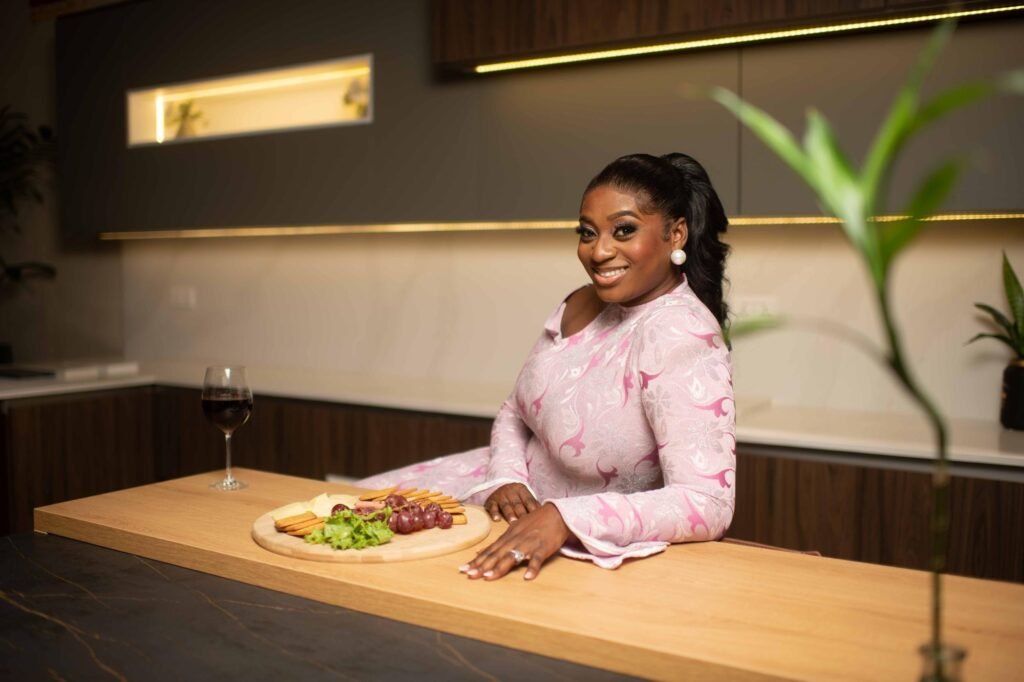
The other thing was stereotyping, saying that, “some years back people look down on food business operators, we were not regarded as professionals with others assuming we are school dropouts or just people who don’t know what we are about.”
But I was determined to change that narrative by handling work with the outmost professionalism, which I have since the beginning of my weight loss journey in 2014.
Chichi is motivated by her faith in Christ, her passion for entrepreneurship, and her commitment to empowering women.
As a wife, mother, and business owner, she strives to create a balance that reflects her vision of an all-rounded woman.
In business, she emphasised, her drive comes from a deep love for the hospitality industry and a desire to help others succeed through the business of catering by NyoNyo, saying that, “My belief that Jesus is Lord guides my decisions, ensuring that integrity, excellence, and purpose shape both my life and business.”
She urged young people, especially young women, who are just starting out in their careers or entrepreneurial journeys to believe in themselves, trust God’s timing, and be willing to put in the work.
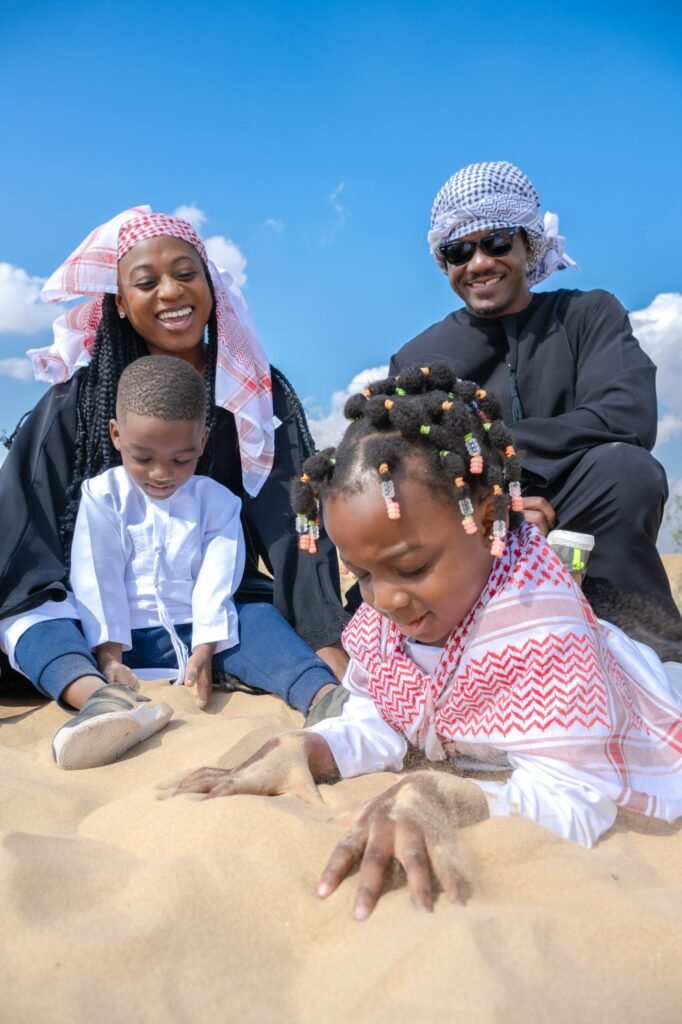
Moreover, she said “success does not happen overnight, so stay consistent, be patient, and keep learning. Surround yourself with the right people, mentors, peers, and a support system that challenges and encourages you.”
“Opportunities don’t pause for perfection. While we overthink, others take action. Start where you are, with what you have. The world moves fast—so should we,” – Chichi Yakubu advised
She again added that women should embrace their multifaceted roles without guilt saying “you can be an entrepreneur, a wife, a mother, and a sister’s keeper all at once. Most importantly, stay true to your values and never compromise on integrity. Let your journey reflect both purpose and excellence.”

Chicihi loves to spend quality time away from the noise of life in new places or go on an adventure with her family and friends.
She is a product of Christian home school, Okuapeman secondary, Central University College and Harvard University.
By Jemima Esinam Kuatsinu







